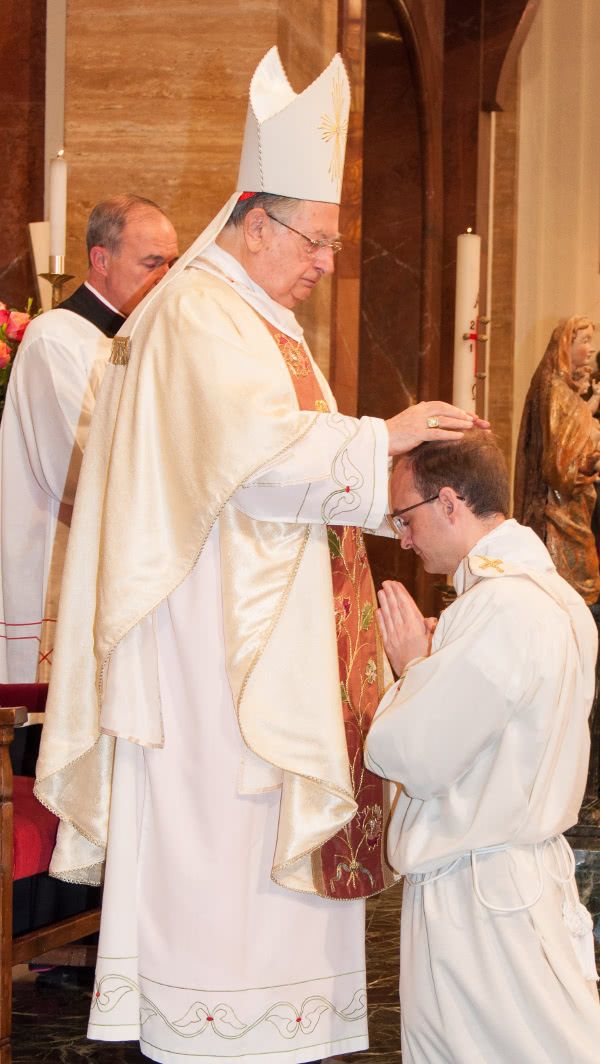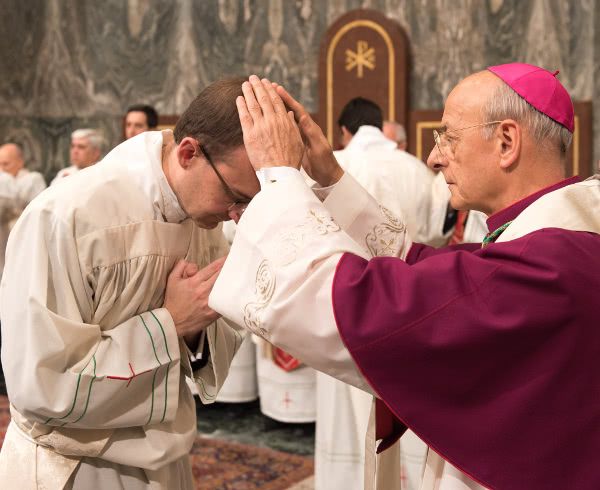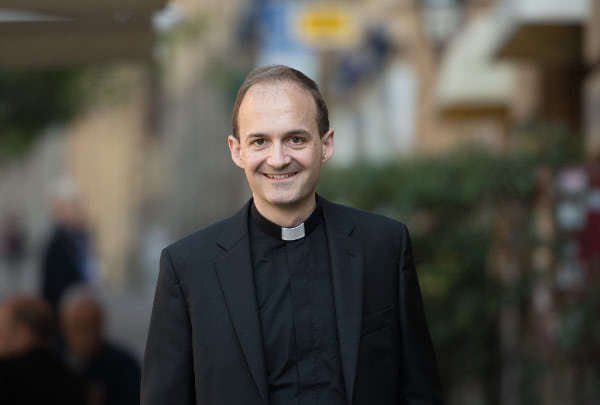Salvador Rego, a PhD. in Mechanical Engineering from the University of Toronto, was ordained a priest in Rome on April 29, 2017 by Cardinal Giuseppe Bertello. He had previously studied at McGill and worked for a few years in Ottawa. In this interview he tells us about his ordination, the importance of the liturgy—the subject of his doctoral thesis—and of his work as a priest.
1. Do you still love engineering, or did you figure out that you loved the priesthood better?
I am very happy with the priestly ordination, and I see it as a fulfillment of something God had in his plans for my life from the very beginning. And I think it was part of God’s plan too that I spent a few years training and working in technical fields.
I look forward to being a priest 100%, as Saint Josemaria Escriva, the founder of Opus Dei, liked to say, and as cardinal Giuseppe Bertello, who ordained us on April 29, reminded us in his homily.
2. Sorry to insist. Has your engineering background been a waste of time for your future ministry, and if no, how can it help?
I think that some skills and traits that engineers develop, such as the capacity to analyse situations, foresee consequences, optimize resources and, perhaps more importantly, often passing unnoticed, will also be valuable for a priest.

3. Are you doing a second doctorate in Rome? In what? How long have you been at it and when do you expect to finish your doctoral thesis? What is the topic of the thesis?
Yes, I’m doing a doctorate in liturgical theology, which I began in 2016 and hope to complete by next year. I’m looking at the rituals of initiation of Valentinians. They have been labelled as Christian gnostics, although there is enough variety in their opinions to question that designation. Valentinians were active between the second and fourth centuries AD. I’m gathering documentary evidence about their baptisms, unctions and eucharistic banquets. Even though Valentinians developed a different theological interpretation of these rituals compared to what the Church taught, they seem to have borrowed the outward shape of those rituals from the Christians. Thus, the ultimate goal is to get a better glimpse of the religious and cultural context of the early Church. Interestingly, for more than forty years Laval University in Quebec City has had a very active research centre devoted to some of these Valentinian sources, namely the Nag Hammadi collection discovered in Egypt in 1945.
4. But why a doctorate in Liturgy? What is so important about... how the Mass is celebrated and such?
Encountering God in the liturgy is beautiful and it’s true personal encounter. I couldn’t think of a more transformative field of studies.

Part II of this interview will be published next week.
